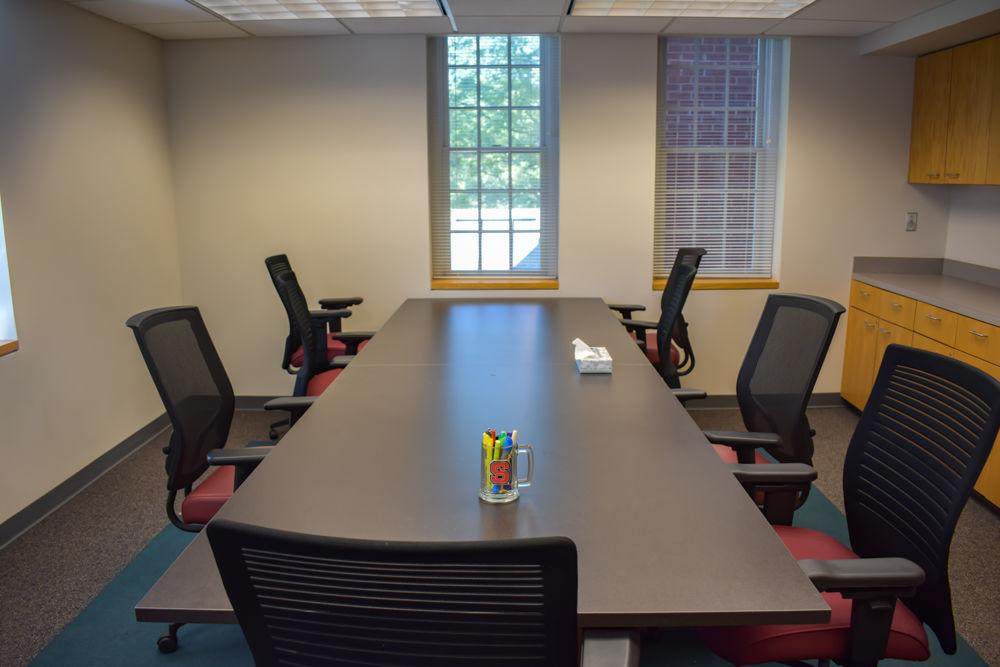For NC State students, the Student Code of Conduct acts as the governing document of the explicit rules student must follow while on campus. The document outlines all possible violations along with sanctions that display consequences that will likely occur if a student is found responsible. For most students at NC State, this is where their knowledge of the code concludes; however, for the roughly 20 active members serving on NC State’s Student Conduct Board, this document is so much more.
Students who serve on the board have the unique opportunity to hear, deliberate and rule on real cases that pass through the conduct office that could result in suspension or expulsion from the UNC System. Jodi Svetaketu, a third-year studying Spanish and former chief justice, explained how the Student Conduct Board operates.
“If a student is accused of a violation, anything that’s outlined in the Student Code of Conduct, they have the option of picking a conduct board hearing, which is where they present their case,” Svetaketu said. “We get to decide based on the evidence and statements we hear from the student and the other party whether they are responsible or not responsible, and if they are responsible, we decide what sanctions should go with that.”
If a student decides to forgo an administrative hearing and instead be heard by the Student Board of Conduct, they can expect one of two things, depending on whether their violation is academic or non-academic. Kiera Jonson, a fourth-year studying microbiology and student body chief justice, discussed the similarities and differences between each type of case.
“Both hearings are comprised of four board members and the presiding officer, who is generally the student chief justice, but you could also just have a trained presiding officer,” Jonson said. “In academic cases, you would have two student conduct board members and two faculty conduct members, and for non-academic we will have four student conduct board members and the presiding officer.”
The board’s primary responsibility during hearings is to determine if a violation occurred, determine who is responsible and decide appropriate sanctions for that violation.
“We ask questions that are pertinent to the specific instance at hand, so we just want to find out did a violation occur and did that student commit that violation,” Jonson said. “After fact finding, we will deliberate and determine responsibility, and then they will come back and do sanctioning if they are found responsible.”
Both Svetaketu and Jonson maintain that offering the option of a student-led “jury of peers” sends a powerful message to students who violate the code and to the NC State community as a whole.
“Since we’re not faculty, we’re not administration or anything, we’re students just like them, it kind of helps us to see their side, especially when questioning,” Svetaketu said. “We can see the importance of being unbiased.”
Jonson said she is proud of the impact she has been able to make on her community through serving on the Student Conduct Board.
“I think it’s important that you have that support from the community to say, ‘We are students and we think the code is important,’ and so we are going to do our part to make sure it’s being applied fairly,” Jonson said.








